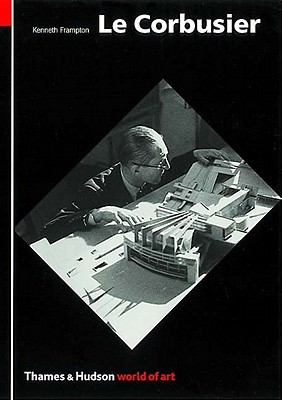
- Išsiųsime per 12–18 d.d.
- Autorius: Kenneth Frampton
- Leidėjas: Thames & Hudson
- ISBN-10: 0500203415
- ISBN-13: 9780500203415
- Formatas: 14.8 x 21 x 1.3 cm, minkšti viršeliai
- Kalba: Anglų
- Extra -15 % nuolaida šiai knygai su kodu: ENG15
Atsiliepimai
Aprašymas
Le Corbusier is probably the most famous and certainly the most controversial architect of the twentieth century. His impact on the urban fabric around us and on the way we live has been gigantic because of the richness and variety of his work and his passionately expressed philosophy of architecture. Weaving through his long and prolific life are certain recurrent themeshis perennial drive toward new types of dwelling, from the early white villas to the Unite d'Habitation at Marseille; his evolving concepts of urban form, including the Plan Voisin of 1925 with its cruciform towers imposed on the city of Paris and his work at Chandigarh in India; and his belief in a new technocratic order. The distinguished critic and historian Kenneth Frampton reexamines all these facets of his artistic and philosophical worldview in the light of recent discoveries, and presents us with a Le Corbusier for the twenty-first century. 200 b/w illustrations.
EXTRA 15 % nuolaida su kodu: ENG15
Akcija baigiasi už 22:08:43
Nuolaidos kodas galioja perkant nuo 5 €. Nuolaidos nesumuojamos.

- Autorius: Kenneth Frampton
- Leidėjas: Thames & Hudson
- ISBN-10: 0500203415
- ISBN-13: 9780500203415
- Formatas: 14.8 x 21 x 1.3 cm, minkšti viršeliai
- Kalba: Anglų
Le Corbusier is probably the most famous and certainly the most controversial architect of the twentieth century. His impact on the urban fabric around us and on the way we live has been gigantic because of the richness and variety of his work and his passionately expressed philosophy of architecture. Weaving through his long and prolific life are certain recurrent themeshis perennial drive toward new types of dwelling, from the early white villas to the Unite d'Habitation at Marseille; his evolving concepts of urban form, including the Plan Voisin of 1925 with its cruciform towers imposed on the city of Paris and his work at Chandigarh in India; and his belief in a new technocratic order. The distinguished critic and historian Kenneth Frampton reexamines all these facets of his artistic and philosophical worldview in the light of recent discoveries, and presents us with a Le Corbusier for the twenty-first century. 200 b/w illustrations.




Atsiliepimai